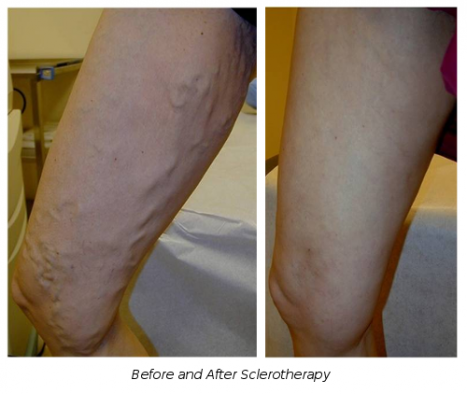What are Varicose & Spider Veins
Veins are blood vessels that return blood back to the heart from all parts of the body. A major challenge for leg veins is that the blood in the legs needs to get back to the heart against the force of gravity when standing. In this position, blood is pumped upward by calf muscle contractions when you walk. The leg veins have one-way valves to keep blood moving upward. When faulty valves do not close properly, they allow blood to flow backwards in the veins when the calf muscle relaxes and cause blood to pool in the veins of the lower leg. This pooling leads to increased pressure within the veins which over time causes them to dilate and elongate. Dilated and elongated veins in the skin are known as telangiectasia (or spider veins) and dilated elongated veins below the skin are known as varicose veins. Spider veins appear as small diameter red, purple or bluish web like veins. Varicose veins are larger deeper veins that can protrude resulting in a rope-like appearance.
Who Gets Varicose & Spider Veins?
A family history of vein abnormalities is probably the most important factor in determining whether you will develop leg vein problems. Women are more likely to have varicose or spider veins at an earlier age but the incidence in men is similar by the time they reach their 70’s. Factors that may accelerate the appearance of varicose or spider veins include multiple pregnancies, prolonged standing or sitting, obesity and increasing age.
Do Spider or Varicose Veins Cause Any Symptoms?
Most spider veins are only an aesthetic concern. In some cases, spider veins can be associated with symptoms of itching, burning or throbbing. Varicose veins are frequently associated with symptoms, including leg pain, throbbing, fatigue, heaviness, swelling, or achiness. In a small number of patients, chronic varicose veins can be associated with skin injury in the lower leg or ankle area including eczema, pigmentation, skin thickening, ulceration, or bleeding.


